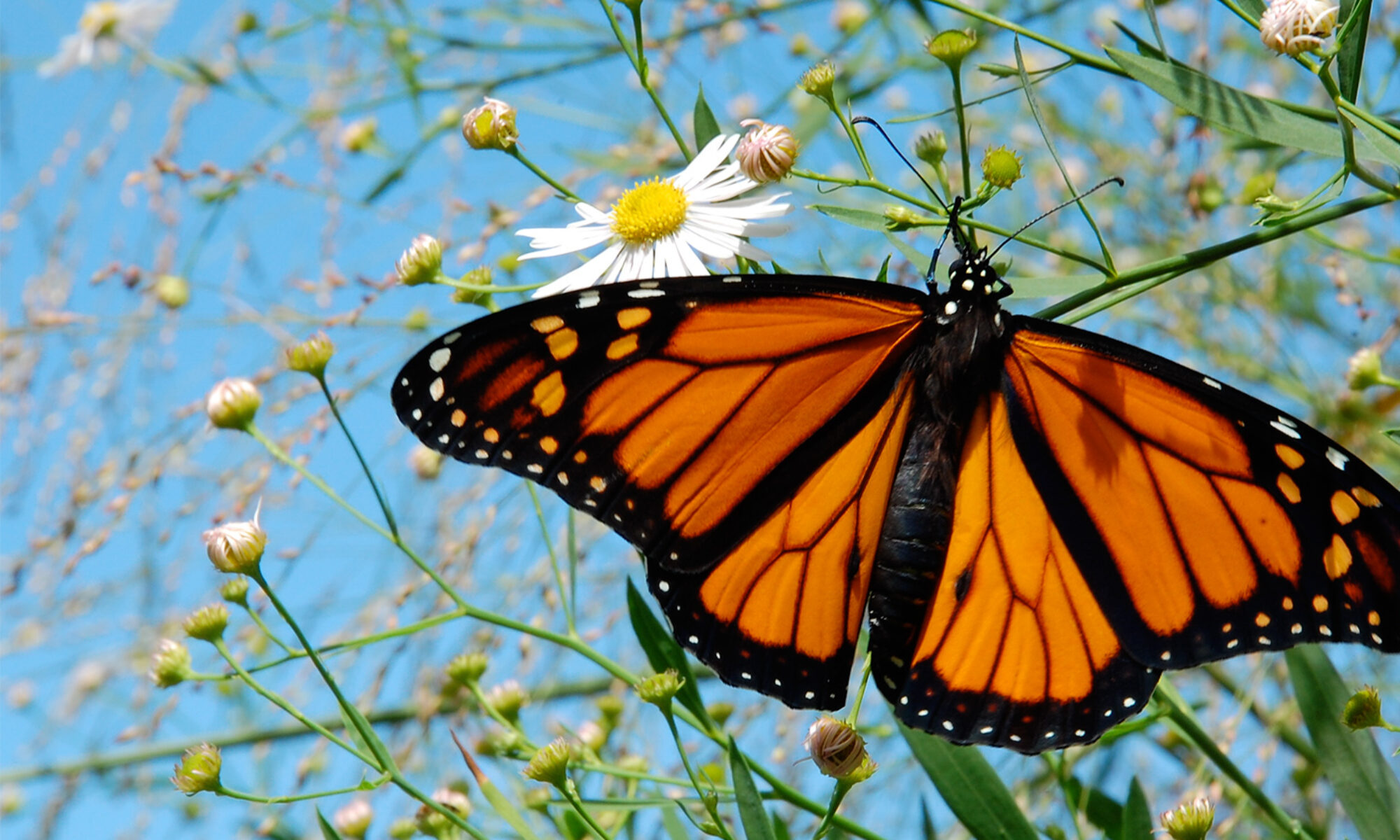DEFINITION OF TERMS:
- KEYSTONE means they are listed by National Wildlife Federation as core plants for a wildlife garden in my ecoregion (Ecoregion 8).
- NOT QUITE NATIVE means they are slightly out of range but adjacent to NYS as determined by GoBotany and NY Flora Atlas.
- Otherwise the plant is a NY-native or native to the area noted.
Bluebells (Mertensia virginica)
As a spring ephemeral, it is indeed ephemeral, with even the leaves disappearing after the flowers finish blooming and setting seed. But what a beautiful color when it is blooming! And as Cullina notes, their color changes from fairly bee-invisible pink in bud to bee-attracting sky blue when the flowers are receptive.
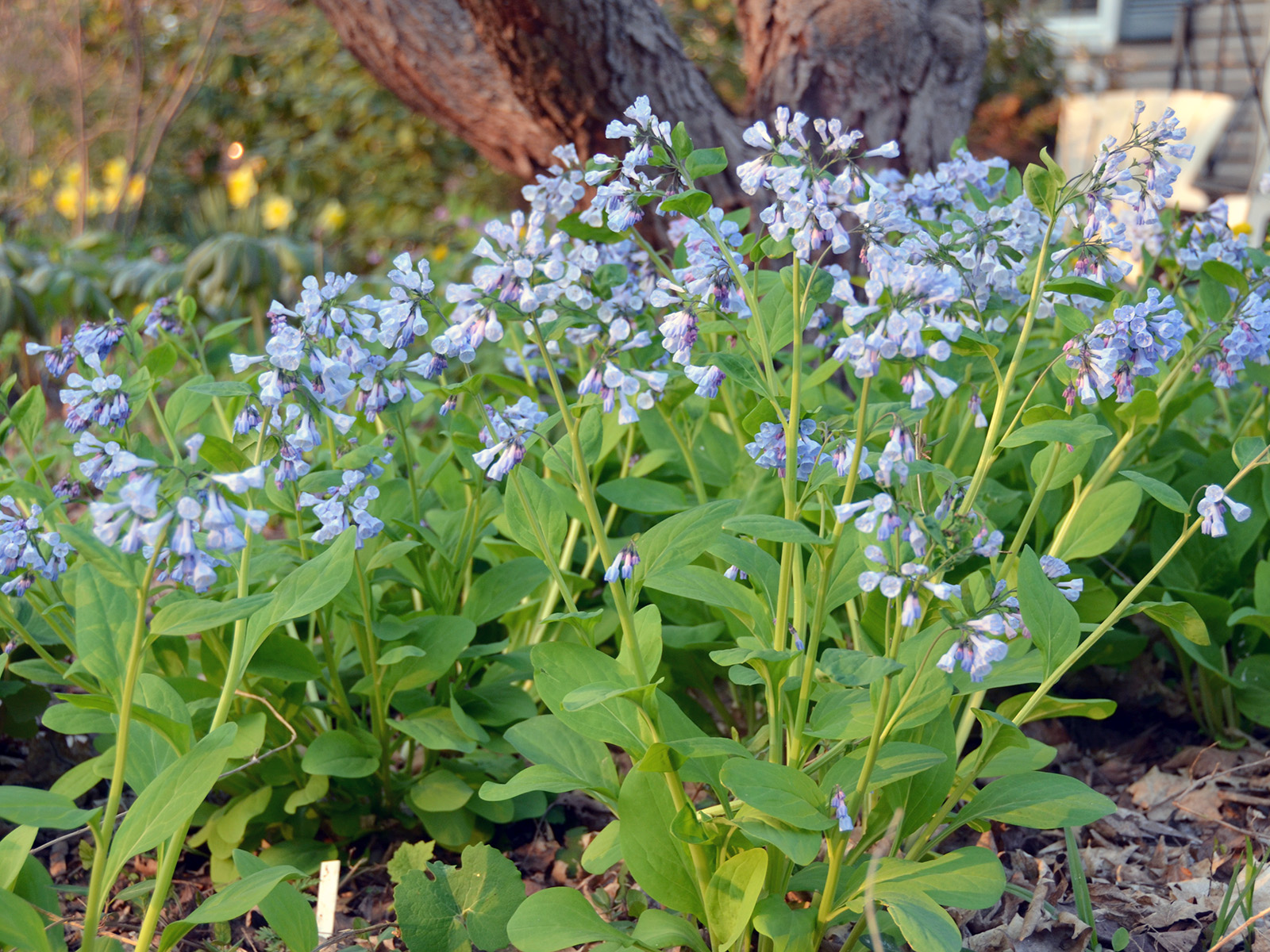
It’s surprisingly easy to start from seed. We simply put the seeds in a little pot, let the pot sit in the ground over the winter, and they just grew. We’ve interplanted them with ferns and other plants that will fill out when the bluebells foliage dies down each year in early summer. Since the foliage dies and completely disappears, I put plant markers next to each plant, but with the patches I have now, I know where they are.
- Learn more:
- Wildflower Center: Bluebells
Swamp saxifrage (Micranthes pensylvanica)
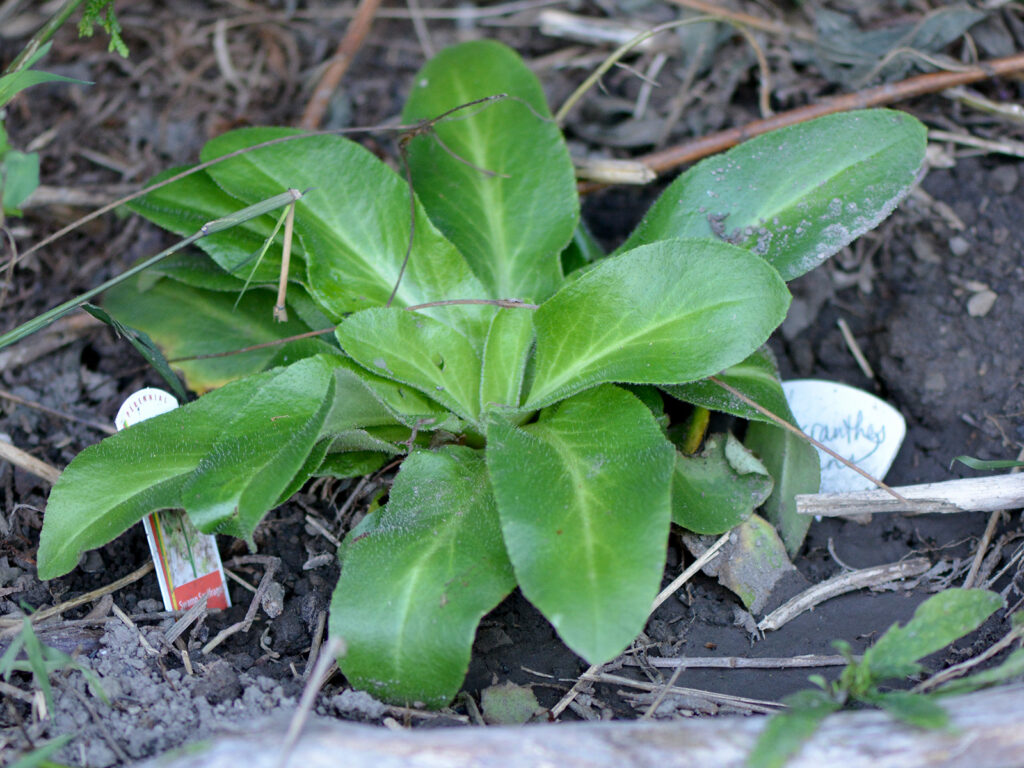
This is supposed to be in a wet area, but I’ve taken a chance by planting this near our rain barrel, hoping that the overflow will be sufficient for this plant.
- Learn more:
- Wildflower Center: Swamp saxifrage
Monkey-flower (Mimulus ringens)
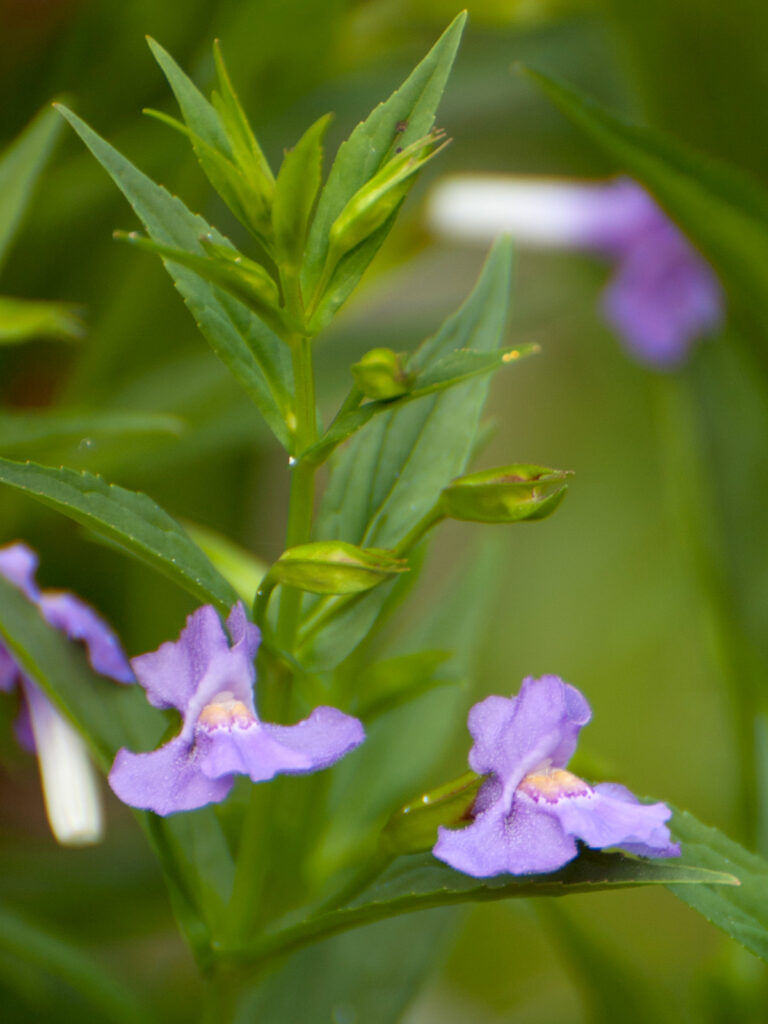
Although at first, these seemed to reseed generously, for some reason they almost have died out.
Then I discovered a bunch of little seedlings in the crack in the sidewalk and planted them. I again have a thriving patch!
Wildlife: Butterflies
Larval host: Common buckeye, Baltimore checkerspot
- Learn more:
- Wildflower Center: Monkey flower
Partridgeberry (Mitchella repens)
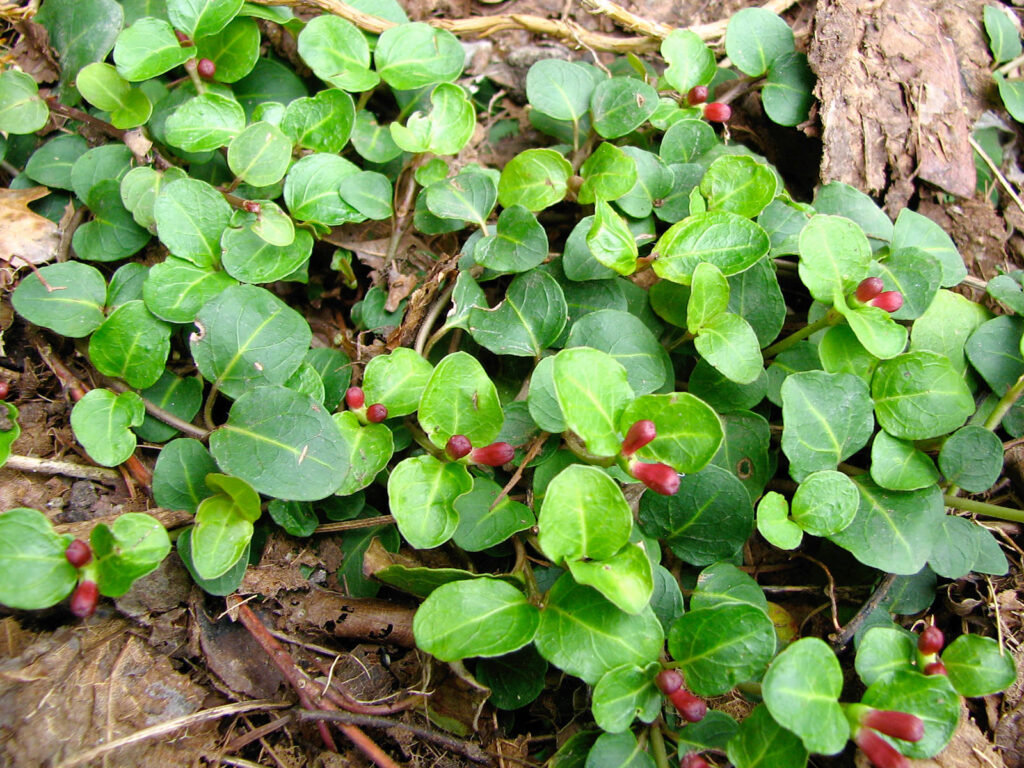
A woodland groundcover with little flowers and red berries. The foliage of this ground-hugging plant is beautiful, though the leaves are rather small.
I don’t think I had true woodland conditions and this died out (or I just let it get crowded out).
Wildlife: Berries for some birds, mammals
- Learn more:
- Wildflower Center: Partridgeberry
Miterwort (Mitella diphylla)
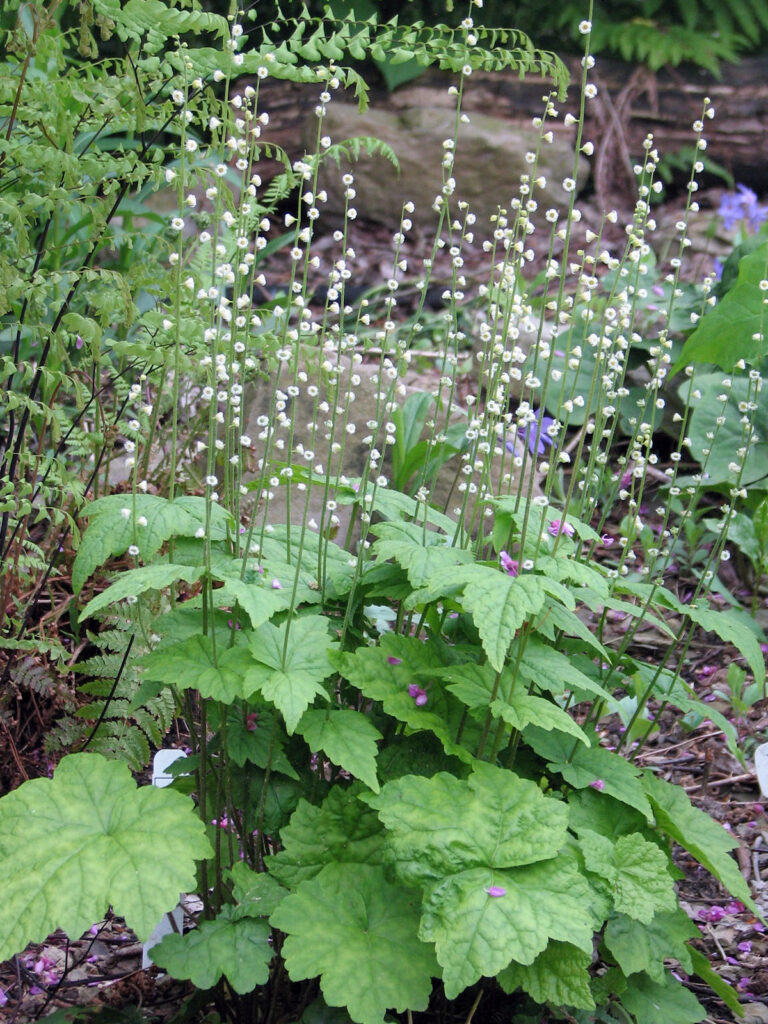
Beautiful foliage and small snowflake-like flowers.
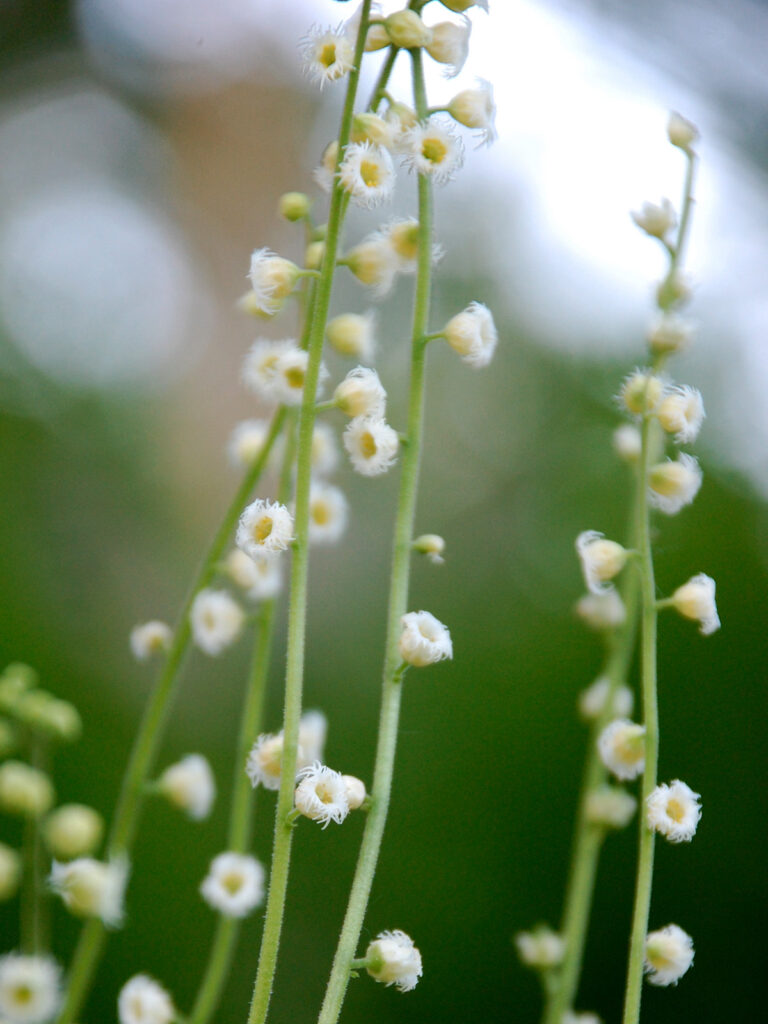
You need to get close to appreciate the flowers, but I always enjoy these details of my landscape more than the big picture. This was true when we were hiking in the mountains, too. Of course, it’s hard not to be awed by the magnificent scenery, but I still was drawn to even the smallest flowers along the trails.
